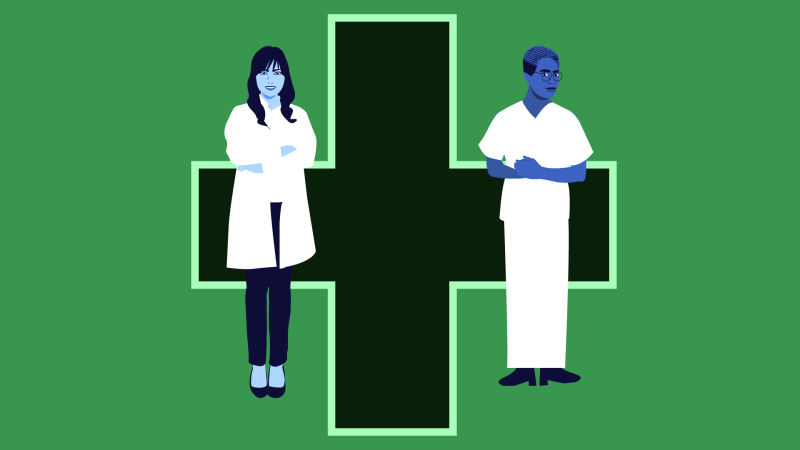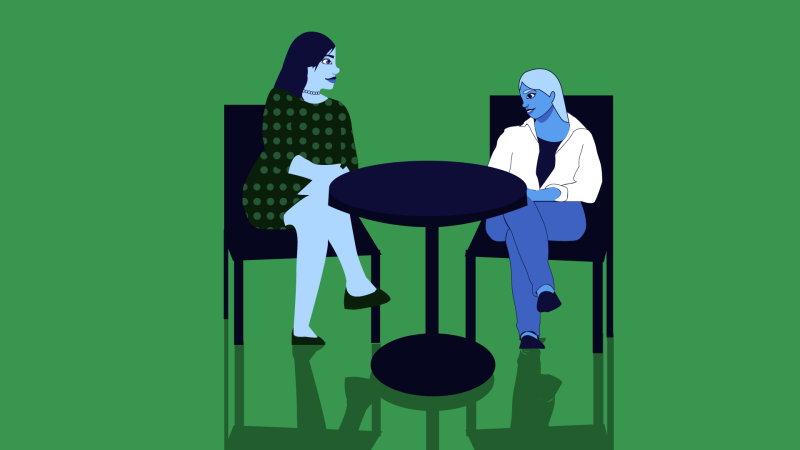Suicide is rare, but...
- it happens
- there are over 6,000 deaths by suicide in the UK every year – an average of 16 per day.
Intense emotional strain and mental exhaustion can cause people to behave in uncharacteristic and unpredictable ways.
Some things that drive people to think about suicide are:
- Personal catastrophes, such as the break-up of a relationship, money insecurity, the loss of a loved one
- A persistent sense of worthlessness or failure; uncertainty about sexual or gender identity or personal goals
- Good things happening to other people, such as friends getting married, going off to university or getting new jobs, and feeling left behind
- A combination of the above. A whole series of little setbacks can sometimes be more devastating than one big thing

What are the warning signs?
There may not be any. An emotional crisis is not like a heart attack or a stroke, where there are visible warning signs. People who have reached rock bottom can be very skilled at hiding their thoughts and feelings.
They MAY be:
- Quiet
- Brooding
- Withdrawn or distant
- Not making eye contact
- Agitated
- Irritable or rude
- Drinking a lot
- Talking about suicide or saying it’s all hopeless
They may ALSO be:
- Busy
- Chirpy
- Living life as normal
- Going to work
- Laughing and joking
- Talking about future plans
- Telling you not to worry about them
So how will you know if they’re thinking about suicide? The safest way is to ask them.
Why it’s important to ask
If someone is suicidal, they are likely to be feeling:
- cut off from everyone around them
- frightened and ashamed about wanting to die
- desperate for help but afraid to ask.
They need someone to start the conversation for them. This shows them that they have permission to talk about it and that they don’t have to wrestle with their dark and terrible thoughts alone.
It’s important to trust your gut instincts. If something about the person doesn’t look or feel right, say something.
Saying something is safer than saying nothing.
Saying the word won’t make it happen.

What to say
It can be really scary starting this kind of conversation.
Step 1:
Explore how they’re feeling. If something bad has happened to them, ask, “How has it made you feel?” They may shrug and say, “I’m OK.” If they don’t seem OK to you, keep trying, quietly and gently. Listen attentively. Try to keep the dialogue open by asking questions like, “How bad is it?” or “What’s that like?” Don’t deny what they’re telling you, and don’t pretend you know how they feel.
Step 2:
Ask the ‘S’ question If they give any indication that they’re feeling hopeless or can’t see the point in going on, ask clearly and calmly, “Are you having any thoughts of suicide?” Don’t be too quick to accept denials or joking responses.
Some common fears:
“Won’t talking about suicide put the idea in her head?”
No. If a person is suicidal, the idea is already there. If they aren’t suicidal, it won’t do any harm.
“What if I say the wrong thing? It could damage our relationship.”
Showing a person you care about them won’t damage your relationship. Saying nothing could result in losing them forever.

If someone tells you they are feeling suicidal and you feel there is an immediate risk:
GET MEDICAL HELP
Make sure they are not left alone
Remove any items they could use to take their own life e.g. Tablets
Call their GP or 999 or take them to A&E and wait with them until they are seen.
Canterbury On Campus Emergency:
Campus Security staff are on duty 24 hours per day, 365 days per year and can always be contacted on their emergency number: (01227 82) 3333
If you feel there is no immediate risk but you are still concerned:
Even if it is only a hunch, share your concerns with others.
Mental Health and Wellbeing Team
The Mental Health and Wellbeing Team consists of Mental Health Advisers, Counsellors and Student Mentors. The team can help with issues such as stress and anxiety, panic attacks, depression, eating difficulties, sleep problems, low self-esteem, self-harm and suicidal thoughts.
For mental health support, please email KentSSW@kent.ac.uk or
Phone on 01227 823158 for the Canterbury campus or 01634 888474 for Medway.
Spectrum Life - Out of Office Hours Support
Our external partners Spectrum Life can offer online, text, and telephone support from qualified counsellors and therapists to any student who is experiencing a mental health crisis or who needs emergency wellbeing or counselling support outside of office hours.
Spectrum Life will provide initial support and help during a crisis and the University Student Support and Wellbeing teams will follow up the next working day.
- Spectrum Life is available on weekday evenings from 8pm till 8am, and on weekends and Bank Holidays.
- Telephone: 0800 0318227 or Text ‘Hi’ to: 00353 87 369 0010
- Search for the Spectrum Life app from your app store and follow the log in instructions

Looking after yourself
If someone has said to you that they are having suicidal thoughts or you have been supporting a friend who is feeling or has felt suicidal, it is important that you look after yourself too. It can be emotionally exhausting to support someone in crisis, so consider the impact on your mental health. It may also be triggering and cause stress and anxiety.
How can you safeguard your wellbeing when providing help and support to a friend in distress?
- Talk to someone, it can be a mental health adviser or counsellor in Student Support and Wellbeing, an NHS professional or external support providers like Spectrum or Togetherall, who are available 24/7.
- Tell a friend or family member how you are feeling, make sure you are not dealing with it alone.
- Try not to take on too much, know your own limits.
- Get the right help and don’t be afraid to tell someone at the University who you trust.
NHS Stay Alive App
The Stay Alive app, developed by Grassroots Suicide Prevention, is a suicide prevention resource for the UK, packed full of useful information and tools to help you stay safe in crisis. You can use it if you are having thoughts of suicide or if you are concerned about someone else who may be considering suicide.
The app includes:
- A safety plan with customisable reasons for living
- A LifeBox where you can store photos and memories that are important to you
- Strategies for staying safe and tips on how to stay grounded when you’re feeling overwhelmed
- Guided-breathing exercises and an interactive Wellness Plan
The app also links you directly to local and national crisis resources, with space to add in your own as well.
Download the Stay Alive app from your app store.
Confidential helplines and sources of support
SAMARITANS
National telephone: 116 123 (this number is free to call)
Email Samaritans: jo@samaritans.org (UK and ROI)
Canterbury: Samaritans Canterbury, 32 Northgate, Canterbury, Kent, CT1 1BL
Medway: Samaritans Medway, Priory Road, Strood, Rochester, ME2 2EG
PAPYRUS
Prevention of Young Suicide 0800 068 41 41 (Mon–Fri 10am–10pm; weekends 2pm–10pm; bank hols 2pm-5pm) www.papyrus-uk.org
CALM
Campaign Against Living Miserably 0800 58 58 58 (7 days a week, 5pm–midnight) www.thecalmzone.net
SANE
Mental Health Helpline 0300 304 7000 (7 days a week 4.30pm–10.30pm) www.sane.org.uk
MIND
0300 123 3393 (Mon–Fri 9am–6pm) www.mind.org.uk
Maytree
A sanctuary for the suicidal 020 7263 7070 www.maytree.org.uk
Useful further information
The Mind guide to supporting someone when they're suicidal
The Student Minds Look After Your Mate guide
The Time to Change guide to supporting someone you know
The Mental Health Foundation friendship and mental health page
This information is based on information developed at The University of Exeter Medical School in collaboration with The Alliance of Suicide Prevention Charities (TASC).





